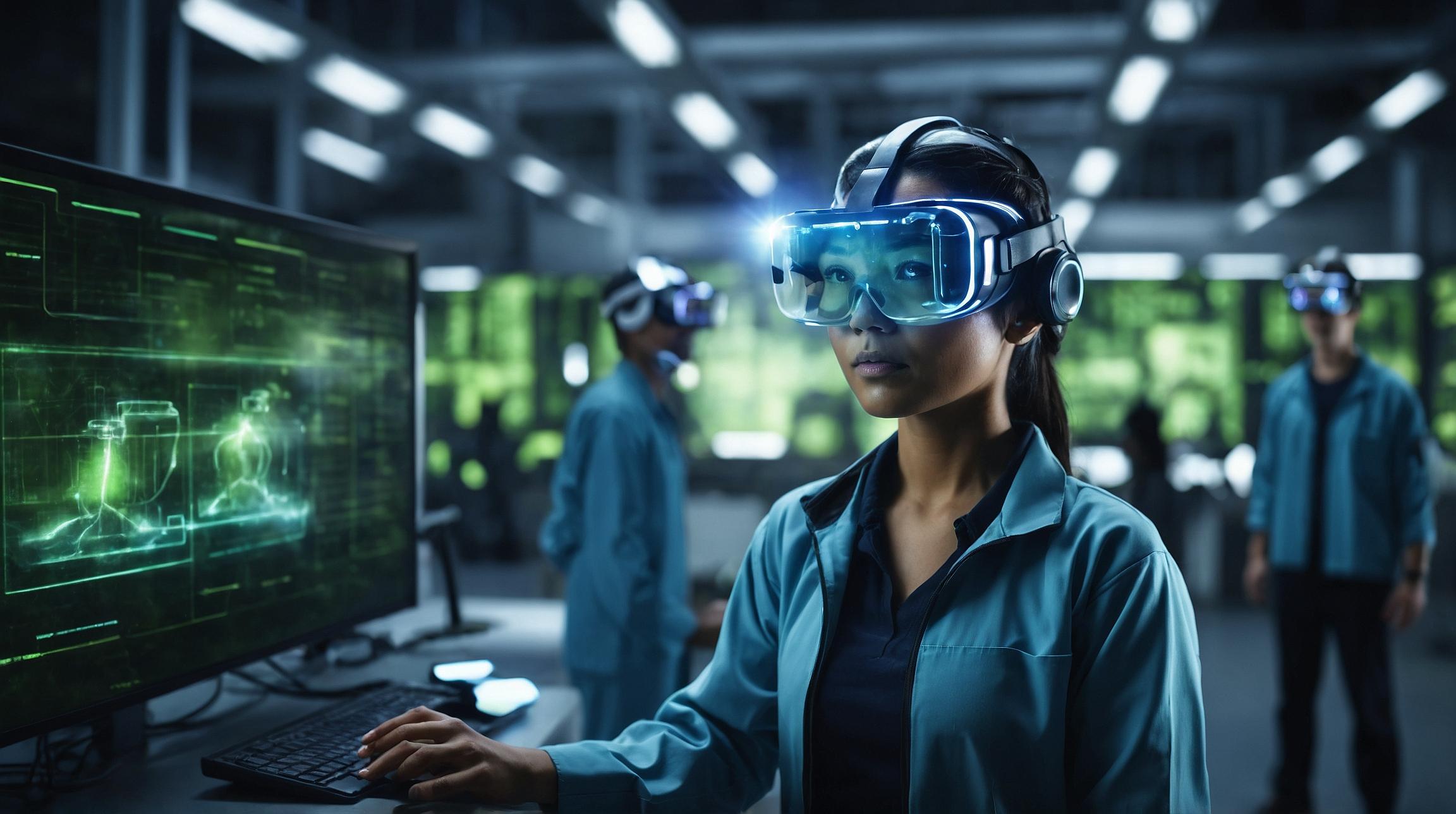Transformative Power of Extended Reality in Worker Training
Extended Reality (XR), encompassing virtual, augmented, and mixed reality technologies, is revolutionizing various facets of life, notably in worker training. XR is not just a tool for entertainment but a catalyst for career development and job training across sectors such as healthcare, manufacturing, and skilled trades.
Breaking Training Barriers
XR offers solutions to common training hurdles like location constraints, physical space requirements, and resource availability. Imagine being able to train for a new career without needing to travel to a specific location or fit into a classroom setting. For instance, Interplay Learning provides VR simulations for HVAC, plumbing, electrical, and solar energy training, enabling access to certifications from anywhere, crucial for rural workers.
On-Demand Training with XR
Industries facing labor shortages, like the skilled trades, benefit from XR’s ability to upskill workers quickly. According to McKinsey, the demand for skilled trade workers is rising due to infrastructure and green energy investments. XR’s remote and self-paced training appeals to younger workers who value flexibility, allowing many to be trained simultaneously. This technology is adaptable to growing fields like clean energy, providing a scalable solution.
Enhancing Human Skills Amid Automation
As automation advances, the value of human skills increases, especially in sectors like healthcare. XR tools not only teach procedural tasks but improve communication and empathy. Mass General Brigham has integrated XR in nursing education to enhance retention and reduce costs by minimizing equipment purchases. Another example is Embodied Labs, offering VR experiences to understand patient perspectives in healthcare settings, fostering empathy among caregivers.
Customizable and Inclusive Learning
Traditional learning methods don't always cater to everyone. XR allows for customized learning experiences that accommodate different learning styles and economic backgrounds. The Colorado Community College system exemplifies this by pooling resources to create an AR training program, facilitating personalized learning and practical application in various industries.
Policy and Investment in XR
The potential of XR to enhance learning and training is immense, much like AI. However, without thoughtful policy and investment, some may miss out on its benefits. Businesses of all sizes should explore XR technology to stay competitive and ensure workforce inclusion. By adopting XR, companies play a crucial role in transitioning XR from gaming to a vital workforce tool.













